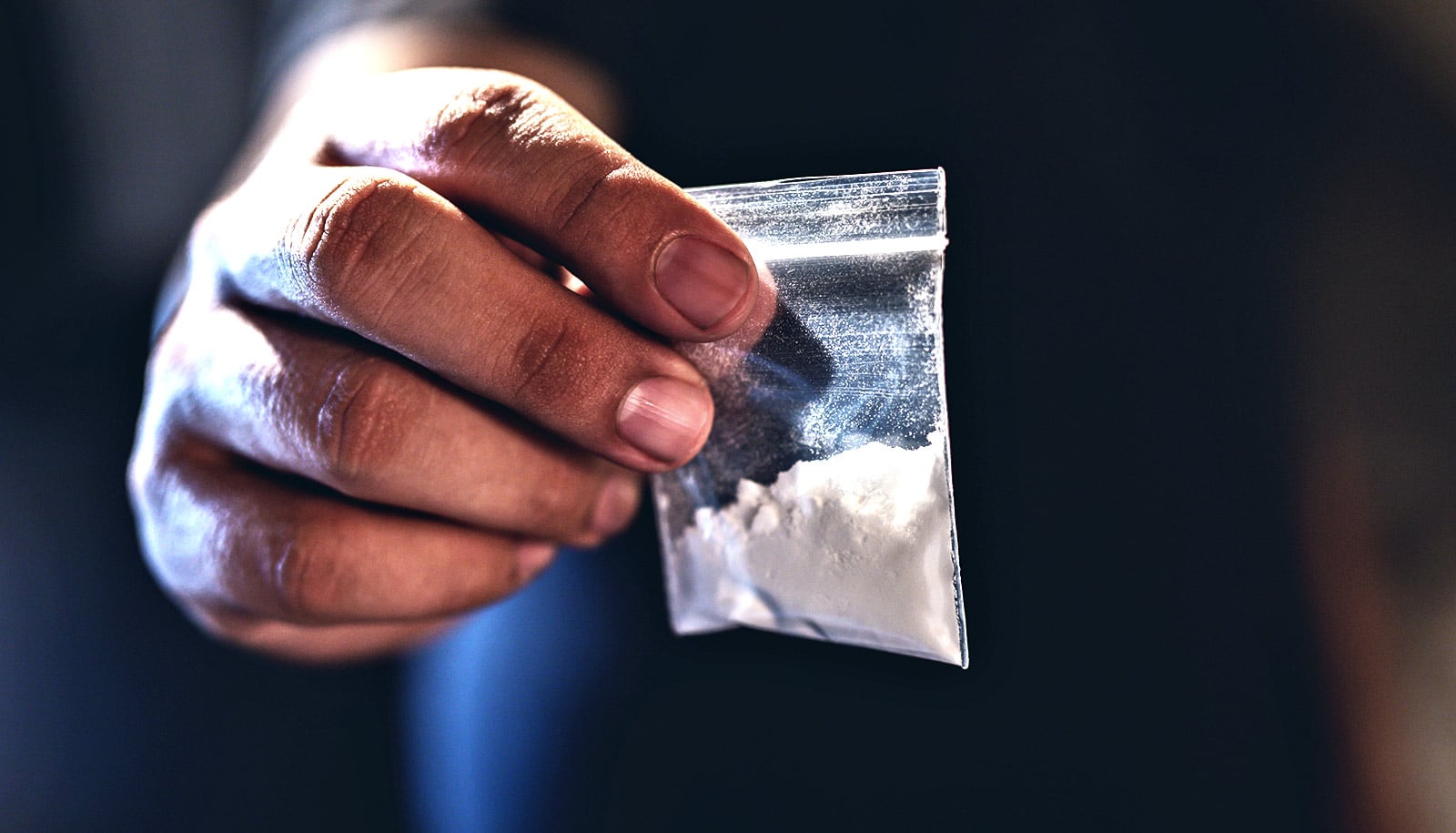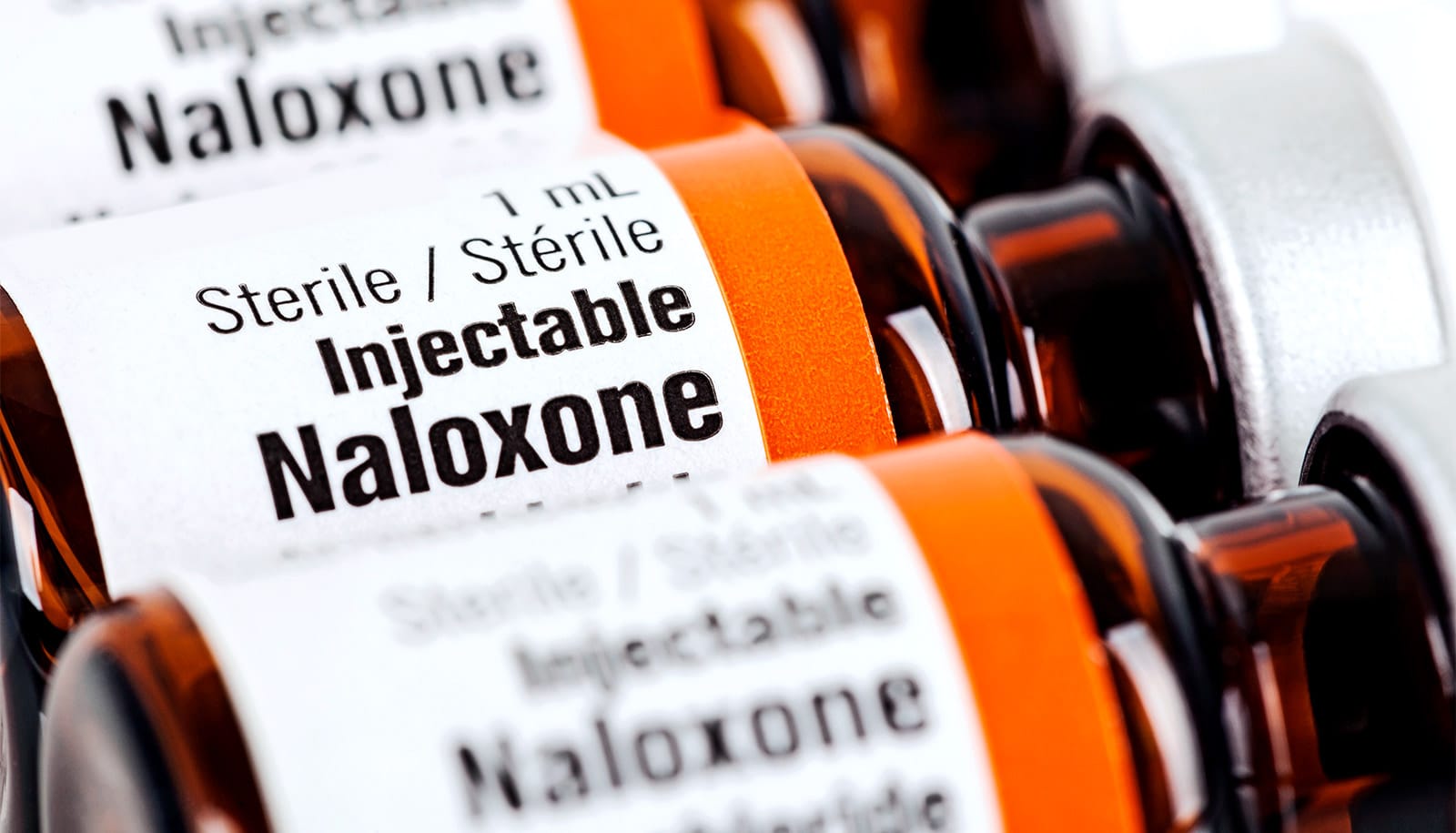So-called “drug checking” programs have unexpected benefits, allowing public health programs to reach and work with people who use drugs who would otherwise not access services such as HIV testing, a new study shows.
Drug checking refers to analyzing illegal drugs, or prescription drugs not acquired from a pharmacy, that people have used or are about to use. There are various technologies available for drug checking, but the ultimate goal is to reduce overdoses and other health risks associated with an increasingly contaminated illicit drug supply.
“We already knew that using fentanyl test strips reduces overdoses in the United States—these are used to identify whether fentanyl is present in other drugs,” says study first author Jennifer Carroll, an assistant professor of anthropology at North Carolina State University.
“We also knew that drug checking with advanced technologies, such as spectrometers, has been very effective at preventing drug overdoses in other countries, such as Canada and the United Kingdom.
“However, we are only beginning to see drug checking technologies adopted in the US. This research focused on an organization in the US that was beginning to use commercially available spectrometers for drug checking, to learn what would need to be done to implement similar programs aimed at reducing overdose and other harms associated with drug use.”
Specifically, the researchers wanted to identify what barriers existed to implementing a drug checking program, as well as to document the individual and community health benefits associated with getting the program off the ground.
HIV and other health services
The researchers worked with an organization called Access, Harm Reduction, Overdose Prevention and Education Syringe Exchange (AHOPE) based in Boston, Massachusetts, which was implementing a drug checking service using fentanyl test strips and two mobile spectrometers.
People using the AHOPE program did not bring in their drugs, per se. Instead, participants would bring in empty baggies or other containers, allowing program staff to run tests on trace amounts and residues of drugs found in the containers.
Over the course of 22 months, the researchers observed the program firsthand and conducted in-depth interviews with program staff and syringe-exchange participants who benefited from the service.
The study findings have relevance to public health, public policy, and the operation of drug checking programs.
“In addition to helping reduce drug overdoses, we found that there are also other public health benefits,” Carroll says. “For one thing, we found that demand for drug checking services was very high.
“People who don’t normally come into contact with syringe exchanges, such as middle-class folks who use drugs, began coming to AHOPE in order to get their drugs checked. We also found that drug distributors came to the program to check their drugs.
“In some instances, when high levels of fentanyl were found, distributors recut their drugs to reduce the potency to better protect their clients. In at least one case, a supplier threw out a batch of drugs due to the presence of unexpected contaminants.
“We also saw that, because the number of people coming to AHOPE increased, there was an increase in the number of people who took advantage of other services, such as HIV testing and treatment for opioid use disorder. In other words, our study suggests that drug checking has a big and positive knock-on effect in other spheres of public health.”
Drug checking runs counter to state policies
From a public policy standpoint, the researchers found the drug checking program’s success came in spite of, rather than thanks to, drug policies in Massachusetts. In other words, the drug policies were actively working against public health in this case.
“The primary reason is that working with illegal drugs is illegal,” Carroll says. “So, even though the program was working with trace amounts of drugs to implement a scientifically proven overdose prevention strategy, law enforcement personnel made clear that operating the drug checking service gave police probable cause to arrest AHOPE staff.
“Essentially, in a program designed to improve public health and safety, we found multiple instances in which law enforcement used its discretion to prioritize the enforcement of misdemeanor drug possession even when it hurt vital overdose prevention efforts. Even a shift to being impartial to program workers would be a step in the right direction.”
Lastly, the researchers found that there is significant room for improvement of the drug checking technology. “Mobile spectrometers are just not designed to work under the conditions that exist for drug checking programs,” Carroll says.
“There are myriad small changes that could make the technology more effective for work in this space. BTNX, a company that makes fentanyl test strips, has been actively working with harm reduction organizations across the US to ensure its product meets the unique specifications required for drug checking. It would be great to see other manufacturers adopt the same enthusiasm for this exciting new use of their products.
“Looking forward, we know community drug checking programs are becoming more common in the US, such as at the NC Survivors Union in Greensboro, North Carolina and several programs led by the state health department. We also know these programs can save lives.
“Hopefully, our findings will inform the development of policies that will allow these programs to work. For example, in North Carolina, we have laws in place that allow the use of fentanyl test strips, but those protections don’t explicitly extend to the use of spectrometers for drug checking. There’s zero reason to treat these tools differently. They do the same work—spectrometers just do it more effectively.”
“Forward-thinking by RIZE Massachusetts helped support leading innovators like AHOPE to break the mold on overdose prevention and public health response,” says coauthor Traci Green of the Center of Biomedical Research Excellence (COBRE) on Opioids and Overdose at Rhode Island Hospital.
“What’s been learned from this project will help set a new course for research and policy with evidence-based tools to navigate an unpredictable drug supply.”
The paper appears in Harm Reduction Journal.
Additional coauthors are from Brown University, Brandeis University, and NC State. The work was done with support from the nonprofit organization RIZE Massachusetts.
Source: NC State



